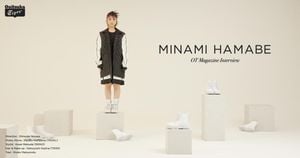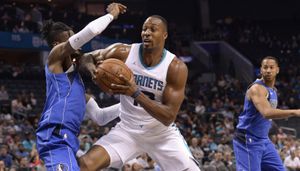OTTAWA — The Liberal Party leadership race is heating up as candidates gear up for key debates and interviews, spotlighting their visions for Canada’s future amid challenging political dynamics. With the backdrop of rising tensions due to Donald Trump’s policies and internal party setbacks, the competition is more than just about winning votes; it’s about restoring trust within the party and with the electorate.
The stakes are high as four main candidates — former Bank of Canada governor Mark Carney, current Burlington MP Karina Gould, former deputy prime minister Chrystia Freeland, and former MP Frank Baylis — prepare to face off. The first significant confrontation will be the French-language debate taking place Monday evening, moderated by veteran journalist Pierre Jobin.
According to CBC News, this debate will be the only chance for the candidates to directly address the French-speaking audience, who form a substantial part of the Liberal voter base. Each candidate's performance is expected to be pivotal not just for garnering immediate support but for setting the tone of the race as it heads toward the decisive voting period from February 26 to March 9.
Karina Gould recently shared insights during her interview, discussing the central issues she believes will resonate with voters. "Millennial suburban moms are important to the electorate; they need to see themselves reflected in leadership," Gould asserted, emphasizing her commitment to representing often-overlooked demographics.
Throughout her campaign, Gould has recognized the growing anxiety among Canadians surrounding Donald Trump’s reinstated tariffs, portraying them as immediate challenges. Her focus on protecting Canadian supply management and supporting agriculture highlights her vision to stabilize rural communities, which is especially urgent as tensions with the American administration escalate.
Gould also candidly addressed criticisms of the current Liberal government's policies, stating, "We’re not going to win the next election by being Conservative-light." With every candidate brimming with ideas, Gould underscored the importance of delivering transparent communication to the electorate, especially when discussing tax changes.
Competing for the spotlight, Mark Carney and Chrystia Freeland are also staking their claims for leadership, with their experience garnering both recognition and scrutiny. Carney has returned to the political arena following his roles at the international level, eyeing their potential impact during tense negotiations with the U.S. government. Meanwhile, Freeland, having stepped away from her position as finance minister under previous Prime Minister Justin Trudeau, has become particularly vocal about the need for the party to adapt and listen to the Canadian public.
Freeland articulated her ambitions for the party during her interviews, touching on the government's response to inflation and affordability crises. “Our response was: but look how good a job we did on COVID,” she pointed out, lamenting the delay to pivot effectively when the situational demands changed.
The narrative attempts to bring forth not only policy but also character as she stated, "We need to demonstrate to Canadians we hear their issues and our solutions will differ moving forward.” Her comprehension of Canadian values and the socio-economic nuances will be pivotal to winning the support of skeptical party members and the broader public.
On the other hand, Frank Baylis, who was initially seen as the least likely to capture attention, has focused on his entrepreneurial experience to carve out space for himself. Yet, some analysts have pointed out his apparent shortcomings compared to his more prominent rivals like Carney and Freeland.
The leadership contest has not been entirely smooth, as evidenced by Ruby Dhalla’s disqualification earlier this month due to alleged campaign irregularities. This situation accentuates the internal challenges faced by the party, which has seen leaders fall not only due to public opinion but also through struggles within their ranks.
Returning to public dialogue, Gould has criticized the notion of scapegoatting immigrants, instead promoting the need for fair and well-managed systems as integral to fostering trust and cohesion within Canada. Her candidacy reflects her push for representing diverse voices and shifting liberal policies to meet the contemporary needs of Canadians.
Analysts believe Trump's trade policies will have reputational ramifications for the Liberal candidates and their ability to stand up against perceived threats. The need for a coherent and strong message is pressing; Carney, Freeland, and Gould must convince the electorate of their capabilities to lead Canada through the challenges posed by external pressures.
Looking forward, as the candidates prepare for the upcoming debates, their efforts to connect with voters—by sharing visions, addressing criticisms from the past, and presenting coherent plans—will determine their chances of succeeding Justin Trudeau. Each candidate is strategizing to frame their approach to address the latent frustrations within the electorate. Regular public engagements, including conversations with the media, will become more intensified as the February deadline approaches.
This entire leadership transition period marks not just the ascension of a new figurehead for the Liberals but potentially the shaping of the party’s future direction as it navigates the choppy waters of Canadian and international policy.”



